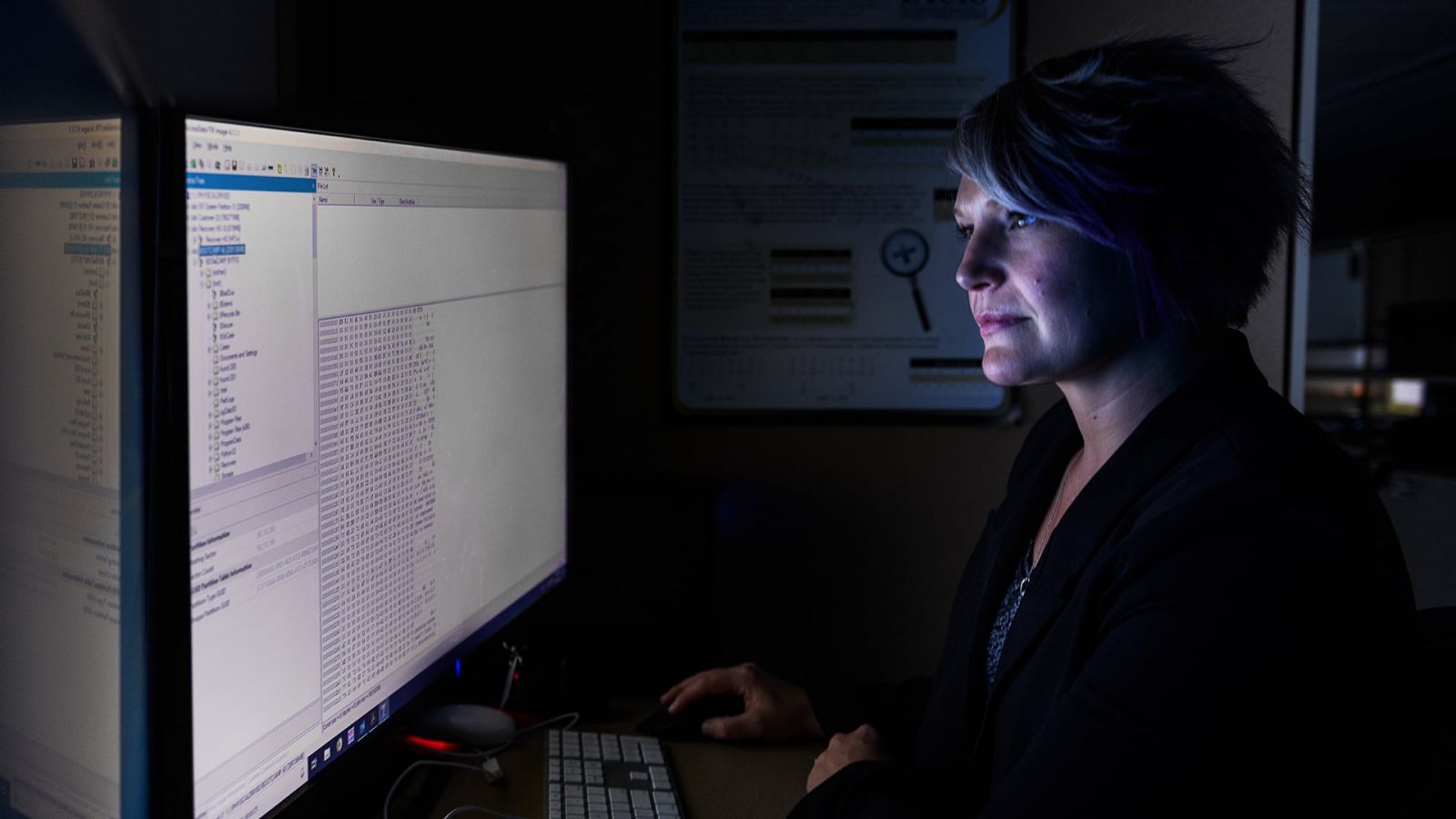
Hidden behind the societal outcry to protect children who are victims of cybercrimes are the law enforcement investigators forced to shuffle through illegal images and other evidence. Kathryn Seigfried-Spellar, assistant professor of computer and information technology, won’t let those enforcement officials be forgotten.
 Seigfried-Spellar researches how digital forensics examiners who have to see thousands of child pornography images every day deal with that kind of job. She looks at the resulting problems, ranging from stress and depression, to secondary traumatic stress disorder and suicidal thoughts. Dealing with that mental workload is beyond taxing, she said.
Seigfried-Spellar researches how digital forensics examiners who have to see thousands of child pornography images every day deal with that kind of job. She looks at the resulting problems, ranging from stress and depression, to secondary traumatic stress disorder and suicidal thoughts. Dealing with that mental workload is beyond taxing, she said.
“No one wants to sign up for that,” said Seigfried-Spellar. “It’s traumatic, especially if you’re not ready. I have had emails from officers saying they were that person who was going to commit suicide but they got help. That’s the whole point: Just knowing that even if there’s only a few people that read one of my studies, it tells them they’re not alone.”
Read the full Purdue News article.
